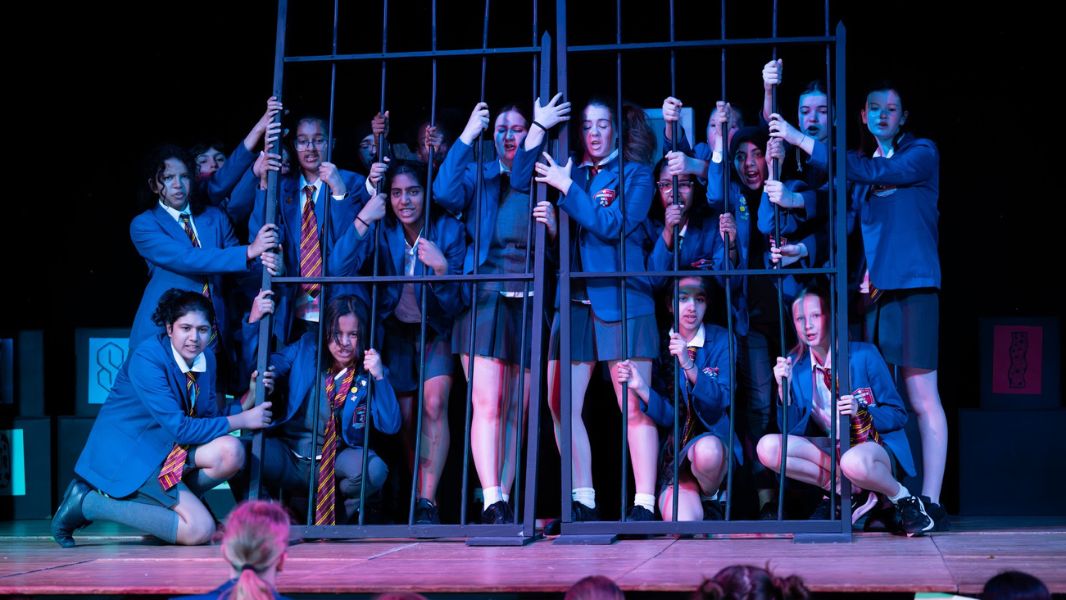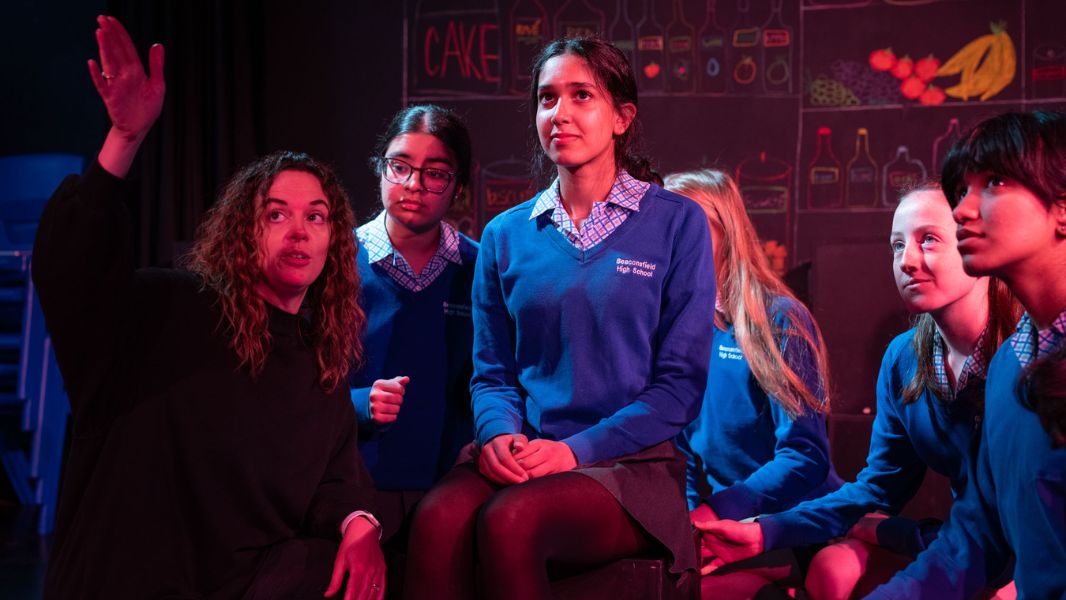Drama

Drama sits within the Performing Arts Faculty. Drama focusses on learning through freedom of expression and our intention is for students to engage in a range of performance techniques in a safe environment where playfulness, risk-taking, and conscious decision-making is celebrated.
The Drama Department exposes students to a broad and balanced drama curriculum that teaches skills and techniques, both practical and theoretical. Students’ oracy and creative thinking skills are promoted to aid in making connections between the drama skills they gain in the classroom and how transferrable they are to other curriculum subjects and their life beyond school.
Students experience a diverse range of drama practitioners and forms to encourage self-confidence, independence, professionalism, collaboration, critical and analytical thinking.
Our facilities include a purpose-built ‘black box’ drama studio for lessons, rehearsals and small performances. We also have an additional rehearsal room and a fully equipped stage, lighting rig and sound system for large-scale performances. The Drama Department are specialists in their field, who are still performing themselves and some of whom have a background in the technical side of theatre and TV.

Co-Curricular Enrichment
- Annual school production
- Theatre and Practitioner workshops
- Trips to see productions (London and locally)
- Mock Trial competition
- KS3 Drama Club / Musical Theatre Club
KS3 (Year 7 – 9)
Years 7 – 8 students have one lesson a week and Year 9 students have one lesson per fortnight.
Year 7: Students develop confidence in working in groups, sharing ideas through performance and learning some of the appropriate language of theatre-making. They will develop basic performance techniques, learn how to tell stories through mime and physicalisation, and explore the use of the voice in drama.
Year 8: Students start to look more closely at some established drama texts. They study War Horse both in terms of performance but also in terms of its innovative use of design; puppetry, sound, lighting, set, costume and multimedia. They also explore the genres/styles of comedy, mime and silent movies through exploration of physicalisation and stylised performance.
Year 9: Students examine the influence of key theatre practitioners, exploring play texts with a view to thinking about how they can be approached as performer, director and designer. The key text studied Girls Like That by Evan Placey. In the summer term, students explore ‘devising’ using an eclectic range of stimuli from key events/historical figures.
GCSE (Year 10 – 11)
Students consolidate a range of performance skills including direct address to the audience, naturalistic acting, ensemble work / clocking, applying choreographed movement to devising, offering variety in the voice and developing characterisation through non-verbal communication.
Text analysis skills are honed through the reading of the plays Shakers and Teechers by John Godber, Kindertransport by Diane Samuels and DNA by Dennis Kelly. For more information on the GCSE course, download our GCSE Options Guide below.
A-Level (Year 12 – 13)
A-Level Drama and Theatre Studies gives students the opportunity to further develop skills as a performer, director and theatre practitioner. Students take part in a range of practical performance workshops, exploring play texts and theatre practitioners.
They are taught to think on their feet and use emotional intelligence to get the best out of people. Analytical skills are further developed as students consider how a text can be brought to life by expressing creative ideas in a coherent and convincing manner, drawing on researched knowledge of influential practitioners.
For more information on the A-Level Drama course grade requirements, download a copy of the Sixth Form Prospectus below. For more information on the course content, download a copy of the A-Level Options Guide below.

.jpg)
.jpg)
.jpg)
.jpg)
.jpg)
.jpg)
.jpg)
.jpg)
1).jpg)
.jpg)
.jpg)
.jpg)
.jpg)
.jpg)
.jpg)
.jpg)
.jpg)
.jpg)
.jpg)
.jpg)
.jpg)
.jpg)
.jpg)
.jpg)
.jpg)
.jpg)
.jpg)
.jpg)
.jpg)
.jpg)
.jpg)
.jpg)
.jpg)
.jpg)
.jpg)
.jpg)
.jpg)
.jpg)
.jpg)
.jpg)
.jpg)
.jpg)
.jpg)
.jpg)
.jpg)
.jpg)
.jpg)
1).jpg)
.jpg)
.jpg)
.jpg)